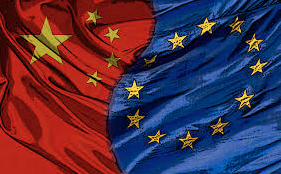BEIJING/BRUSSELS – Amidst growing tensions between the European Union and China over the imposition of tariffs on Chinese electric cars, Beijing has now responded with a countermeasure. Starting from October 11, importers of brandy from the EU must deposit “security deposits with the customs authorities,” a measure primarily affecting France, as it is responsible for 99% of brandy exports from EU countries. This development clearly indicates the hardening fronts in the global trade war, impacting the automotive industry and agriculture.
The EU’s decision to impose tariffs on electric cars from China came after a massive increase in the export of these vehicles in 2023 by 70%, amounting to a value of $34.1 billion. The EU, as the largest buyer of these vehicles, faces a growing dependence on Chinese imports, prompting some member states to vote for protective measures. Germany, Hungary, Malta, Slovenia, and Slovakia opposed the tariffs, while Poland and especially France, which lobbied intensively for them, supported them.
China’s response to the tariffs is a strategic move that puts the EU in a difficult position. European farmers now fear that similar retaliatory measures could hit other sectors, primarily the pork and dairy industries. These concerns are not unfounded, as the agricultural sector plays an important economic role in many EU countries and would be sensitive to trade restrictions.
The current conflict reveals the fragility of global trade relations and the need for a balanced trade policy that considers the interests of both producers and consumers. It remains to be seen how this trade dispute will evolve and what long-term effects it will have on the relations between China and the EU. However, it is clear that both sides could pay a high price if there is further escalation. (zai)

